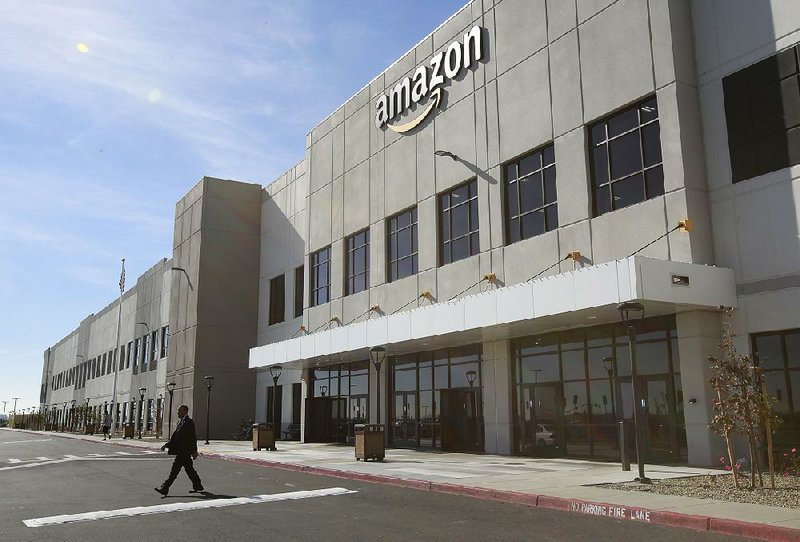A team of Federal Trade Commission investigators has begun interviewing small businesses that sell products on Amazon.com to determine whether the e-commerce giant is using its market power to hurt competition.
Several attorneys and at least one economist have been conducting interviews that typically last about 90 minutes and cover a range of topics, according to three merchants. All were asked what percentage of revenue their businesses derive from Amazon versus other online marketplaces like Walmart and eBay, suggesting regulators are skeptical about Amazon's claims that shoppers and suppliers have real alternatives to the Seattle company. One merchant, Jaivin Karnani, said he was surprised the FTC returned his call the very next day.
The interviews indicate the agency is in the early stages of an extensive investigation to learn how Amazon works, spot practices that break the law and identify markets dominated by the company. The length of the interviews and the manpower devoted to examining Amazon point to a serious inquiry rather than investigators merely responding to complaints and going through the motions, antitrust experts say.
"Early in an investigation, that's a sign of staff doing a serious job," said Michael Kades, who spent 20 years at the FTC. "They're spending lots of time with witnesses and trying to really understand what they're saying."
Amazon hasn't disclosed an investigation by the FTC, and the agency rarely confirms scrutiny of individual companies. But FTC Chairman Joe Simons told Bloomberg in August that he welcomed hearing from third-party merchants, who now sell more than half of products on Amazon. Such private conversations are likely to yield far more insights into Amazon's business than the public grilling of tech executives by congressional committees.
Amazon declined to comment and pointed to a statement consumer business chief Jeff Wilke made in June when asked about reports that the FTC was looking into Amazon. "We believe that most substantial entities in the economy deserve scrutiny," he said. "Our job is to build the kind of company that passes that scrutiny with flying colors." The FTC declined to comment.
The investigation is part of a broader examination of the control companies such as Amazon, Google and Facebook have over the U.S. economy. The FTC is also investigating Facebook while the Justice Department is investigating Google. Separately, 50 state attorneys general have announced an antitrust inquiry of Google. The House Judiciary Committee is also investigating big technology companies. One area of interest is whether Amazon has an unfair advantage over third party merchants when it competes with them to sell similar products on its own platform.
A key early task for the FTC is defining Amazon's competitive universe. The company has long argued that it should be considered a retailer that competes against rivals online and offline, a designation that Amazon says gives it a meager 4% share of the U.S. retail market. If Amazon's market is narrowly defined as online shopping, its share rises to almost 40%, giving it significant leverage. Narrowing the market by product category, such as electronic books, gives Amazon even more dominance.
The FTC is also seeking to determine the extent of Amazon's power over its suppliers. All three merchants fielded questions on how much of their revenue comes from Amazon compared with other online platforms. Many sellers get 90% or more of their sales from Amazon, making them vulnerable to the company's demands and abrupt, unexplained changes in its policy.
The FTC's interest in Amazon is spreading to sellers via word-of-mouth. Some merchants fear incurring Amazon's wrath by cooperating with the agency. One who spoke with an FTC attorney said he was assured the conversation would be confidential unless it led to an official complaint against Amazon or the transcript was subpoenaed by Congress.
"These conversations are going to keep happening," said Chris McCabe, a former Amazon employee who now runs a business helping Amazon merchants. "I've had several people ask me how to go to the FTC. I give them an email, and the FTC is taking their calls."
Business on 09/12/2019
